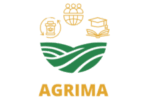Food loss is a critical global issue that undermines sustainability efforts across environmental, economic, and social domains. Despite growing awareness and policy initiatives, progress toward reducing food losses remains uneven, largely due to fragmented, outdated, or inaccessible data. The emergence of open-access platforms such as the FAO Food Loss and Waste (FLW) database, FAOSTAT, and complementary national or regional repositories offers a promising foundation for a more systematic, data-driven approach to food loss assessment. This study explores how online data sources can be leveraged to evaluate food losses at different stages of the agri-food supply chain, across diverse commodities and regions. Python-based tools are used to preprocess and analyze the data, employing exploratory methods such as time series decomposition, trend analysis, and forecasting techniques including Prophet models. In parallel, unsupervised machine learning techniques such as k-means clustering are explored to identify patterns and groupings among countries, crops, or supply chain stages with similar loss characteristics. The aim is not only to quantify food loss trends but also to provide a methodological framework for turning complex, multidimensional datasets into actionable insights which can support sustainability assessments, inform targeted interventions, and guide strategic decision-making by policymakers, researchers, and industry stakeholders.
Stavros Rossos, Efstathios Kaloudis; Computer Simulation, Genomics and Data Analysis Laboratory, Department of Food Science and Nutrition, University of the Aegean, Myrina, Lemnos, 81400, Greece
